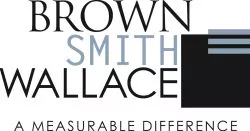Earlier this year, the Department of Labor (DOL), IRS and Pension Benefit Guaranty Corporation jointly proposed major changes to Form 5500. Employers use this form to file an employee benefit plan's annual information return with the DOL.
According to an agency fact sheet, the proposals are intended to improve employee benefit plan reporting by requiring more detailed information on issues such as group health plan compliance, plan investments and service provider fees. Some of the changes would be specifically for 401 (k) retirement plans, but many would affect health plans. Here are some highlights of the proposed changes:
Increased Group Plan Filing Obligations
The proposal would require Form 5500 reporting by all group health plans that must comply with the Employee Retirement Income Security Act (ERISA). This would include those now covered by the filing exemption for small unfunded, insured or combination unfunded/insured welfare plans.
The agencies' proposal would also introduce a comprehensive new Schedule J, "Group Health Plan Information." Schedule J would indicate the types of health benefits offered and the funding method, including information about participant and employer contributions. In addition, the schedule would denote whether the plan is insured, uses a trust, or pays benefits from the employer's general assets. It would also require information about COBRA coverage and insurer refunds, as well as ask whether the plan claims grandfathered status under the Affordable Care Act (ACA) or if it's a:
- High-deductible health plan
- Health Reimbursement Arrangement
- Health Flexible Spending Account
In addition, most filings (except those for small, fully insured plans) would have to provide financial and claims information. Plans would also have to list third-party administrators, stop-loss carriers and other plan service providers — such as mental health or substance abuse benefit managers.
Plus, filers would have to answer questions about compliance with the Health Insurance Portability and Accountability Act, the Genetic Information Nondiscrimination Act, the mental health parity rules, the ACA, and other mandates — including specific questions about compliance regarding summary plan descriptions and summaries of benefits and coverage.
Other Schedules
A separate Schedule C would have to be filed for each service provider, and revisions would more closely align the schedule with the service provider fee disclosure rules. Also, the Schedule C filing requirement would be extended to some small plans currently exempt from filing it.
Meanwhile, Schedule H would be expanded to include questions on topics such as:
- Fee disclosures
- Leveraged asset acquisitions
- Annual fair market valuations
- Designated investment alternatives
- Investment managers
- Plan terminations
- Asset transfers
- Administrative expenses
- Uncashed participant checks
- Summary plan descriptions
Schedule H would also distinguish between assets held for investment and those that were sold during the year.
Schedule I would be eliminated. Small plans that currently file Schedule I would generally need to file Schedule H instead. Plans that invest through a direct filing entity would no longer be required to file Schedule D, though direct filing entities would still file Schedule D.
Projected Impact
The proposed Form 5500 changes are generally targeted to take effect with 2019 plan year filings, though some may be implemented earlier or later. Similar changes are proposed for Form 5500-SF, which would no longer be available to group health plans.
Ultimately, the proposed changes would significantly increase Form 5500 reporting obligations for many employers — particularly those with group health plans.
The agencies are seeking comments (due by October 4, 2016) on a variety of issues, such as the cost and feasibility of providing the detailed group health plan data required under the proposal. They're also requesting comments on the feasibility of treating the filing of Form 5500 (including Schedule J) as compliance with the ACA's transparency in coverage and quality of coverage reporting requirements.
The proposal also mentions IRS-only compliance questions to be added to the 2016 forms and schedules (described in an IRS proposal), along with additional IRS-only items proposed for subsequent years. Since these questions don't apply to welfare plans, the IRS seeks comments on whether to add the questions to the various forms and schedules based on subject matter or collect them on a single IRS-only schedule.
What Now?
Suffice it to say that Form 5500 could have a whole new look and feel soon. You'll likely have to spend additional time and resources completing the form, so work with your benefits advisor to prepare for the changes.
If you have questions about Form 5500, please contact Ron Present, Partner and Health Care Industry Group Leader, at rpresent@bswllc.com or 314.983.1358.
The content of this article is intended to provide a general guide to the subject matter. Specialist advice should be sought about your specific circumstances.

